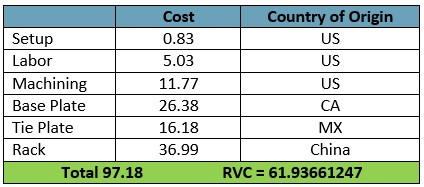The President was prepared to end the North American Free Trade Agreement deal, which had governed trade relations for the past 23 years, with a dramatic announcement April 29th at a Pennsylvania political rally marking his 100th day in office. But after speaking with the leaders from Canada and Mexico, the President announced he will not cancel the North American Free Trade Agreement and will instead work to renegotiate it with Mexico and Canada, reserving the right to cancel if the US does not obtain a favorable deal.
What industries are most affected by renegotiating or cancelling NAFTA?
- Automotive – The US, MX and CA automotive sectors share complex, cross-border supply chains, exporting and importing billions of dollars’ worth of auto parts from one another.
- Agriculture – Canada still has tight controls for dairy, poultry and egg production, effectively shutting out imports from the United States and Mexico to keep domestic prices high.
- Apparel – American textile producers shipped more than $11 billion in goods to Canada and Mexico last year
- Medical Devices – Moving manufacturing back to the US is complex given the FDA must sign off on even the smallest changes at medical factories.
What changes can we expect?
- The administration wants to change “rules of origin” governing what counts as an automobile or other finished good produced within the free trade area. The following example illustrates:

The Regional Value Content (RVC) is the percentage of the value of the good that represents its North American content. The amount required is either 50% (if the Net Cost Method is used) or 60% (if the transaction Value Method is used). By raising the RVC requirement to 70%, the good in our example would be dutiable at 5.0% or, $4.86. This then provides an advantage to source a “Rack” produced in the US, CA or MX, only.
- Another administration goal is to have NAFTA partners expand the market for United States-made goods in their government procurement.
- And in a strange twist, updating NAFTA will resurrect several issues contained in the Trans Pacific Partnership (TPP), including environmental and labor standards, standards to protect digital freedom and dispute resolution.
If you have additional questions, feel free to contact your local MIQ Logistics representative.
